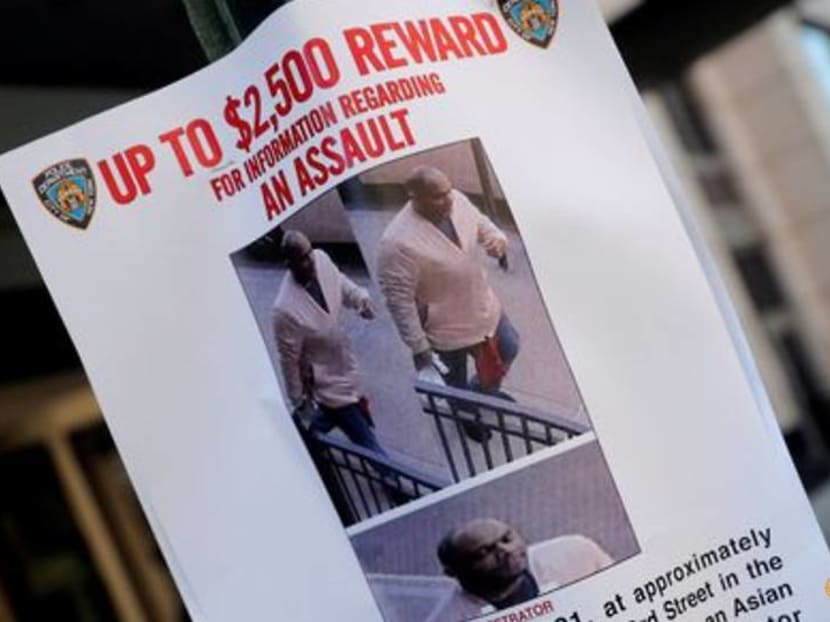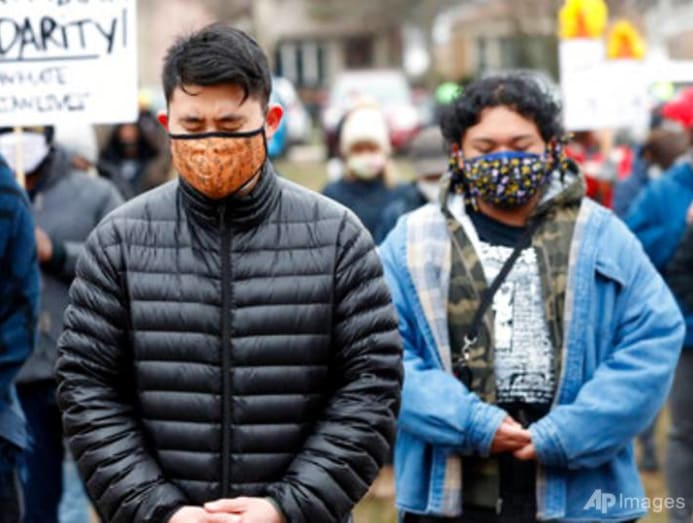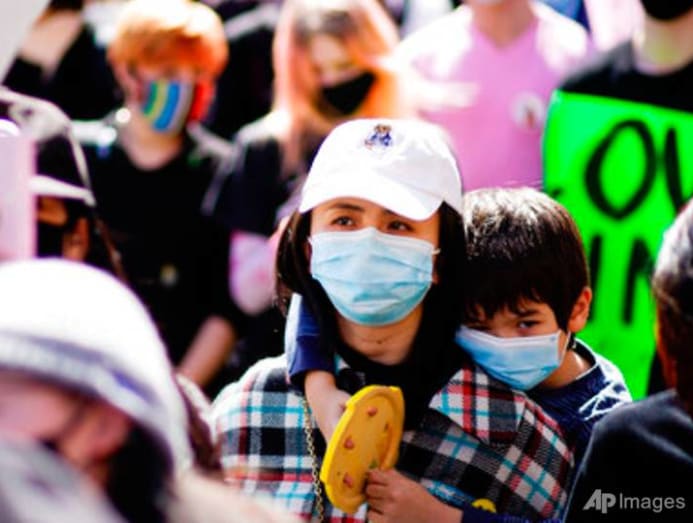commentary Commentary
Commentary: Unusual, enormous bigotry has been long directed at Asian-Americans
Problematic attitudes towards Asian-Americans and the rise of more explicit forms of racism suggest a rethinking in America’s race relations is long overdue, says commentator William Cooper.

New York City Police Department (NYPD) poster after alleged assault attack on Asian woman in New York. (Photo: Reuters)
TRUCKEE, California: Asian-American hate in America is getting worse. A month after the murder of six women of Asian descent in Georgia, a 65-year-old Filipino woman was assaulted – for no apparent reason – in mid-town Manhattan.
These harrowing examples coincide with an increased number of US hate crimes against Asians overall.
New data compiled by Stop AAPI Hate shows the occurrence of verbal and physical anti-Asian hate incidents in the United States may be greater than previously reported – with Asian American women are disproportionately the victim of these attacks.
There were almost 3,800 incidents reported over the past year – significantly more than the previous year's count of about 2,600. Asian-American women were targeted a staggering 68 per cent of the time.
READ: TV host Jay Leno apologises to Asian Americans for decade of 'wrong' jokes
EASIER TARGETS?
According to Russell Jeung, Stop AAPI Hate’s founder and professor of Asian-American studies at San Francisco State University speaking to NBC, “there is an intersectional dynamic going on that others may perceive both Asians and women and Asian women as easier targets".
“I think there are separate trends, the violence that we're seeing now and the racism we saw last year, but they are related,” Jeung continued.
“We're really careful to note that this violence against Asian-Americans in high-crime neighborhoods has always been high. And so the combination of both the racism from last year and crimes against Asian elderly are now significant enough to get national attention.” Indeed, it's not easy to be Asian in America. Asians, who make up 5.9 per cent of the population, are often seen as model minorities, loathed by other minorities and emasculated.

Ironically, this is often the unfair result of their success at integrating into America. Asians are disproportionately represented in America's elite universities. Asian-Americans constitute about 5 per cent of public high school students and about 25 per cent of the students at Harvard and the Massachusetts Institute of Technology.
Worse, Asian-Americans can often be seen as “perpetual foreigners” who are merely aliens that steal prestigious jobs from others. Asian-Americans, for example, have a hugely disproportionate number of high-paying technology jobs in Silicon Valley.
“We were always treated as guest. We had to act accordingly. A lot of the kinds of grievances we did experience were minimised by this country,” famed poet Cathy Park Hong said on New York Times’s Sway podcast.
READ: US Olympic snowboarding star Chloe Kim reveals anti-Asian abuse
“It’s also sort of like the survivor’s mentality,” Hong said speaking about her mother’s advice to avoid speaking out about racism to avoid being a target and trying to just get through each day. She added:
But for someone who’s born here, been here three or four generations, and if they’re still considered second-class citizens, you’re not going to want to keep quiet.
Many Americans think Asians are doing something suspicious and carry loyalties to an Asian country instead of to the US. This same lack of trust and accusatory dynamic does not exist with others to the same degree, research has shown.
A 2005 Washington State University study titled Where Are You Really From: Asian Americans and Identity Denial highlights how Asian Americans are seen as less American than other Americans.
EXPLICIT RACISM
Moreover, while the racism against Asian Americans can be subtle and implicit, it is often overt and explicit. Asians often receive awful, painful greetings like "konichiwa," or “no really, where are you from” irrespective of whether they are US citizens.
According to a survey conducted by the Pew Research Center, three in 10 Asian-Americans have been subjected to racist slurs or jokes since the COVID-19 pandemic began, compared to just two in 10 Hispanics and blacks.

Race relations in the US have typically focused on black-white relations, given the prominence of racial tensions between those groups. This tension was fueled by a disgraceful history that includes slavery, the civil war, and the Jim Crow era.
But it’s time for the United States to take a hard look at how it treats Asians, too. Asians have a long history, themselves, of being discriminated against in the United States.
Commentary: Why did George Floyd protests gain traction worldwide – including Asia?
This history includes the widespread internment of Japanese-Americans during World War II and, beginning well before that, the Chinese Exclusion Act prohibiting the immigration of Chinese labourers and racist enforcement of the law against Asians in operating laundries.
Racism in all its forms is a pernicious evil. The plight of Asians in the United States has been ignored for far too long.
These recent events must be a catalyst for a holistic effort to rid the United States of racism – including against Asian-Americans.
As Harvard President Larry Bacow stated recently, “for the past year, Asians, Asian Americans, and Pacific Islanders have been blamed for the pandemic — slander born of xenophobia and ignorance …. To Asians, Asian Americans, and Pacific Islanders in our community: We stand together with you today and every day going forward.”
Yes. And the first step of standing together is recognising the unusual and disproportionate hatred and bigotry long directed at Asian-Americans.
(Listen to commentators reveal what youths in Singapore want out of public discussions on race and multiculturalism on CNA's Heart of the Matter published in August 2020:)
William Cooper is an American columnist who has written for publications such as The Wall Street Journal, Baltimore Sun and USA Today.





